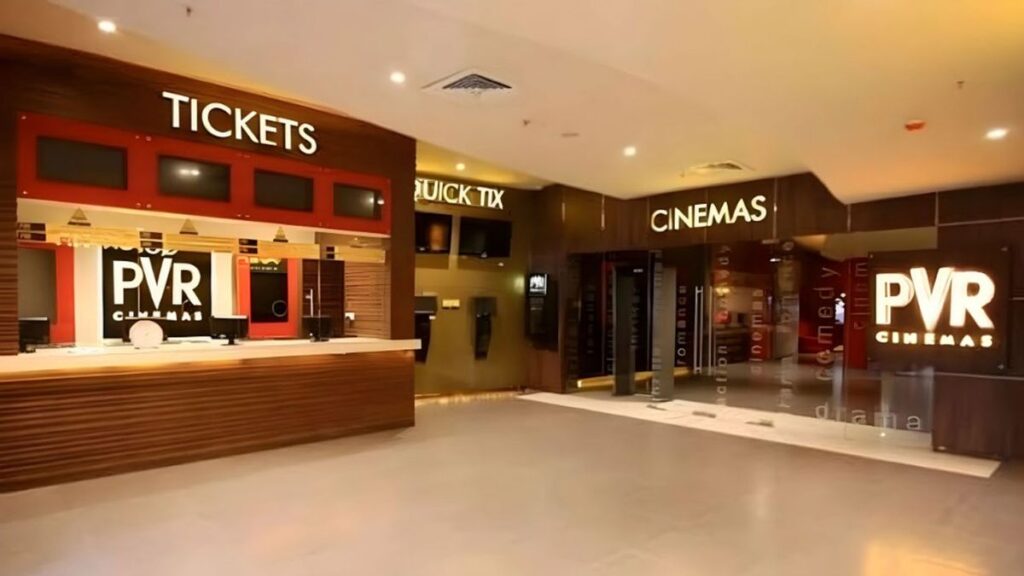Corporate Bookings destroying Movie Buisness:
In post-pandemic times, one phrase has become a weapon in fan wars across social media: “Corporate booking!” What was once a quiet trick in the background has now become an open secret, raising serious questions about the authenticity of box office numbers and the future of theatrical cinema. Here’s our take on how this trend is hurting the movie business.
/filters:format(webp)/movietalkies/media/media_files/2024/10/31/EqMJQXRCJgMgmwgFzGpE.jpg)
The Indian movie industry thrived during the 2008–2019 period, following the multiplex boom of 2003–2007. But the 2020 lockdown brought everything to a halt. Audience habits shifted drastically—people no longer felt the need to go to cinemas, especially with the comfort and affordability of OTT platforms. Add to that soaring ticket prices and overpriced food at multiplexes, and cinema halls lost their charm. As box office collections started dipping, producers and stars began to feel insecure—and in came the so-called solution: corporate bookings.
Kajol compared to Jaya Bachchan for her cold behavior with paps; Check out her reaction –
Earlier, such bookings happened on a small scale, barely noticed. But with platforms like BookMyShow offering transparent seat selection and booking details, the trend became more visible. Today, one can easily spot large blocks of seats marked as “booked” online, only to walk into a near-empty or half-empty theatre. This raised questions—if the money isn’t coming back to the pockets of producers, is this really helping?
Consider a hypothetical case: a producer-star duo makes a film for ₹200 crore, adds ₹50 crore for promotions, PR tie-ups, and influencer marketing. Total cost: ₹250 crore. To “ensure” a solid box office total, they spend another ₹50 crore on self-bookings. Now the effective budget is ₹300 crore. Even if the box office shows ₹300 crore nett, it’s not pure profit—₹50 crore of that is recycled money.
Offers like “Buy 1 Get 1 Free” or 50% off further blur the numbers. If a weekday collection is ₹10 crore under a BOGO offer, only ₹5 crore is actual revenue. Producers end up paying ₹5 crore from their pockets just to earn 5 crore which would come anyway without any offers—a classic case of zero-profit math.
Since the pandemic, even big blockbusters have resorted to corporate bookings. Some do it to reach benchmark numbers; others to create a perception that the film isn’t a flop (even if it doesn’t become a hit). If a ₹500 crore grosser includes ₹50 crore in self-bookings, it’s still relatively safe. But when a ₹200 crore film relies heavily on inflated bookings and only manages ₹100–150 crore organically, it’s not enough to be declared a hit. Sometimes, it’s only to avoid flop verdict and fall within average or semi-hit verdicts. Some genius trade guy had once made a solid statement: “Either your film is a hit or it’s a flop, there nothing in between.” So, all that marketing gimmicks and self buying just to avoid this statement technically.
What’s worse is that regular audiences don’t even care about box office numbers. It’s mostly a game of perception within the industry—and everyone inside knows the truth. The media, trade analysts, and even rival camps are aware. The problem intensifies when influencers and media outlets—many of whom operate on a “pay-for-post” model—only call out corporate bookings if they aren’t paid. The rest of the time, they cheerfully promote inflated figures and verdicts provided by the producers.
On social media, this fuels toxic fan wars. Paid tweets get massive engagement, rival fans respond with counter-attacks, and soon the conversation spirals into South vs Bollywood or Hero A vs Hero B debates. It’s a vicious cycle. Each fake number sets a new benchmark, pushing the next film to go even further with artificial inflation. In the end, the final result is zero—just more noise, more negativity, and no real progress.
Jaideep Ahlawat left Ramayana because he felt secondary to Yash? Read His Comment –
The worst casualty in all this? Authenticity. The credibility of box office numbers is nearly lost. The reputation of the industry suffers. And most importantly, the focus shifts from quality storytelling to shallow optics. We don’t have a tracking agency like Rentrak like Hollywood and that’s why there is no silly war like producer figures vs. Trade figures. We are backwards in this case.
It’s high time the industry resets its priorities. Rather than chasing false perceptions, we need to invest in quality cinema. Because in the end, it’s not the box office numbers but the legacy of great films that truly stands the test of time.
Stay tuned to Movie Talkies’ website and social media platforms (Facebook, Twitter, Instagram), along with our YouTube channel, for the latest updates, breaking news, box office reports, movie reviews, celebrity spotting, and interviews from Bollywood, television, OTT, Hollywood, and regional cinema, including South Indian films.

